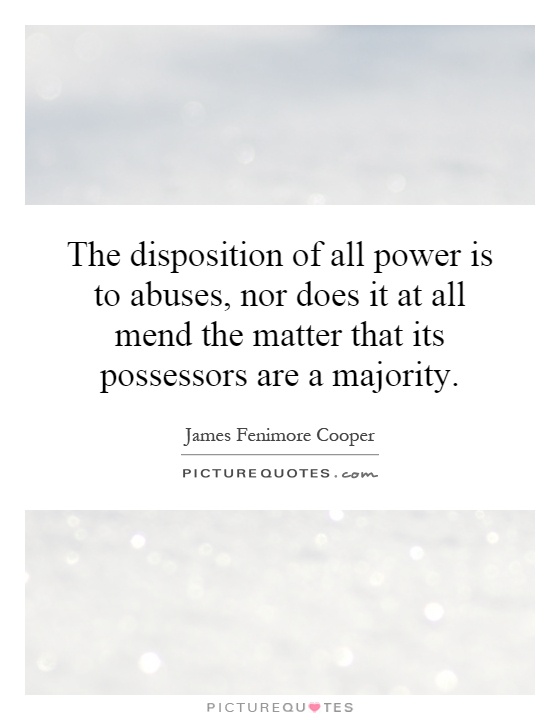The disposition of all power is to abuses, nor does it at all mend the matter that its possessors are a majority

The disposition of all power is to abuses, nor does it at all mend the matter that its possessors are a majority
In the context of James Fenimore Cooper's works, the quote "The disposition of all power is to abuses, nor does it at all mend the matter that its possessors are a majority" holds significant relevance. Cooper's novels often explore themes of power, authority, and the potential for corruption that comes with them. Throughout his works, he delves into the complexities of human nature and the ways in which power can be both a force for good and a source of abuse.One of Cooper's most famous works, "The Last of the Mohicans," provides a prime example of the quote in action. Set during the French and Indian War, the novel follows the adventures of Hawkeye, a white frontiersman raised by Native Americans, and his companions as they navigate the dangers of the wilderness. Throughout the story, various characters wield power in different ways, from the British military officers to the Native American tribes to the French forces. As the characters vie for control and influence, the quote's assertion that power tends towards abuse becomes evident.












 Friendship Quotes
Friendship Quotes Love Quotes
Love Quotes Life Quotes
Life Quotes Funny Quotes
Funny Quotes Motivational Quotes
Motivational Quotes Inspirational Quotes
Inspirational Quotes